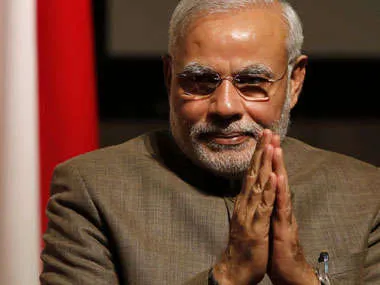 It is a little amusing to note western institutions embarking on a periodic discovery of Narendra Modi-led India and struggling to make sense of the results, and even more amusing to note Modi's detractors—both home and away—splitting hairs and endlessly shifting goalposts to hang on to their narrative even as India continues to repose faith in its .
It is a little amusing to note western institutions embarking on a periodic discovery of Narendra Modi-led India and struggling to make sense of the results, and even more amusing to note Modi's detractors—both home and away—splitting hairs and endlessly shifting goalposts to hang on to their narrative even as India continues to repose faith in its .
The latest findings by Pew Research Center, a US nonpartisan think tank, confirm what most Indians already know: That the prime minister continues to grow in popularity more than three years into his tenure in defiance of trends in democracies.
Whereas most leaders experience the dreaded three-year itch as it tips over the halfway mark and approaches the end of tenure, the Pew survey finds that the Indian prime minister—after a short blip in 2016—has recovered 12 percentage points this year and has now touched levels that he had reached shortly after being elected in 2014.
According to the survey, 88 percent Indians (nearly nine of ten) hold a favourable view of Modi, including 69 percent of those who express "a very favourable opinion". As news agency Reuters points out, "Such high ratings are unusual for political leaders three years into office in south Asia, where governments are more often voted out than retained as people become frustrated with broken campaign promises."
What's even more astounding is that this apparent jump in popularity happened post-demonetisation, an audaciously disruptive move carried out in November 2016 which saw 86 percent of circulating cash being sucked out of the system overnight in a predominantly cash-based economy.
The Opposition, detractors and an endless array of western and Indian commentators, economists and journalists had written off the BJP's chances in the ensuing Uttar Pradesh elections due to the apparent disgruntlement that demonetisation caused among the public and the shock that the economy had suffered. We were told that UP elections would be a "litmus test for Modi and BJP". Let us recount some headlines